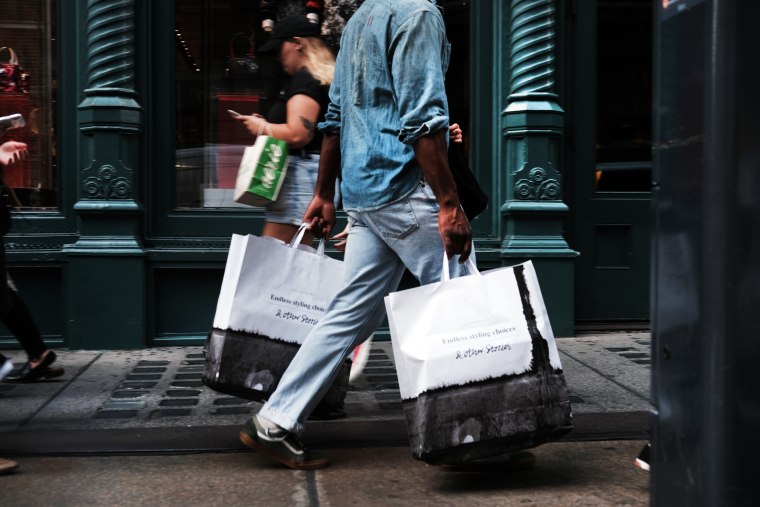In spite of a decades-low unemployment rate of 3.5 percent, analysts say slipping wage gains revealed in the monthly jobs report released Friday indicate that economic growth — which has been heavily dependent on consumer spending in recent months — faces increasing risk.
“The wage growth numbers are the big surprise this month,” said Glassdoor senior economist Daniel Zhao. “They were really disappointing. This signals that the labor market is still not as tight as we’d expect at this point, and the result is that workers aren’t seeing as much benefit from the longest economic expansion in history that we’d expect,” he said.
The 136,000 jobs added in September fell below analyst expectations, adding another underwhelming data point to a week that also saw slowdowns in both manufacturing as well as service-sector activity, with the manufacturing sector falling to the lowest level since June 2009.
Manufacturing lost 2,000 jobs, and the entire goods-producing sector added only 5,000 jobs last month. Zhao said Glassdoor’s internal data shows that manufacturing job openings are down 15 percent on a year-over-year basis. “That really has a lot to do with employers in the manufacturing sector grappling with the effects of the trade war,” he said.
“This data probably reinforces the case that the U.S. is now beginning to feel the effects of the ongoing global slowdown,” said Sameer Samana, senior global market strategist at the Wells Fargo Investment Institute.
Wage growth is another area of concern. “Despite the fact that you’ve got an unemployment rate at multi-decade lows, the amount of wage inflation in the systems still seems to be pretty muted,” said Chris Zaccarelli, chief investment officer at the Independent Advisor Alliance.
On an annualized basis, wage growth rose 2.9 percent in September, down from 3.2 percent last month, leaving some economists to conclude that the rate of growth for this economic cycle has peaked and prompting worry about how well ordinary Americans can sustain their current level of economic activity.
“Consumer spending is really what’s propping up economic growth right now,” Zhao said. “Any warnings about consumer spending would be concerning.”
Slower wage gains also mean Americans will be quicker to feel the pinch of higher prices due to the trade war with China. As they gear up for the all-important fourth quarter, retailers and shoppers alike have to worry about tariffs imposing higher prices on all kinds of consumer goods, which would erode both buying power and confidence.
“Consumers are the economy right now,” said Nela Richardson, investment strategist at Edward Jones. “That might change if we get tariffs that take effect that hit consumer goods right at the height of the holiday shopping season. This is something to watch,” she said, adding that the time of year raises the stakes of any potential consumer shock.
“It’s the way it will feel to workers,” Zaccarelli said. “As far as feeling like you’re getting wealthier, that pace is definitely slowing down. There’s that concern — is weakness right around the corner?”
